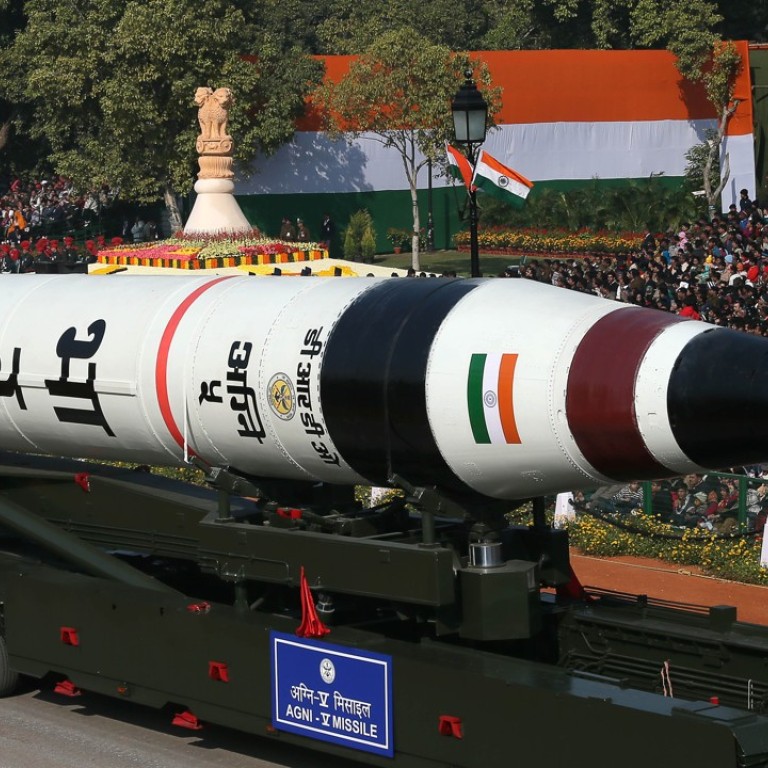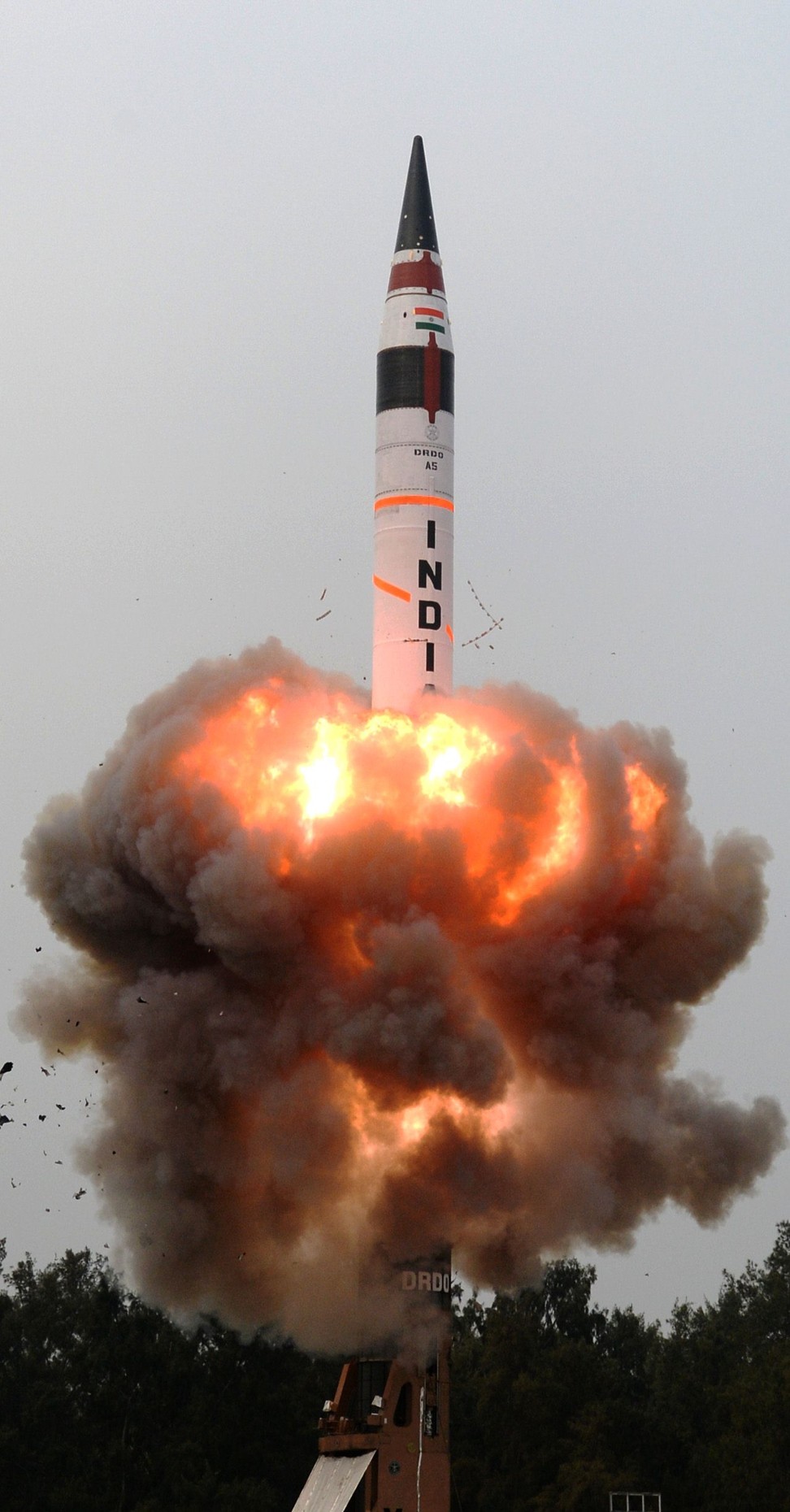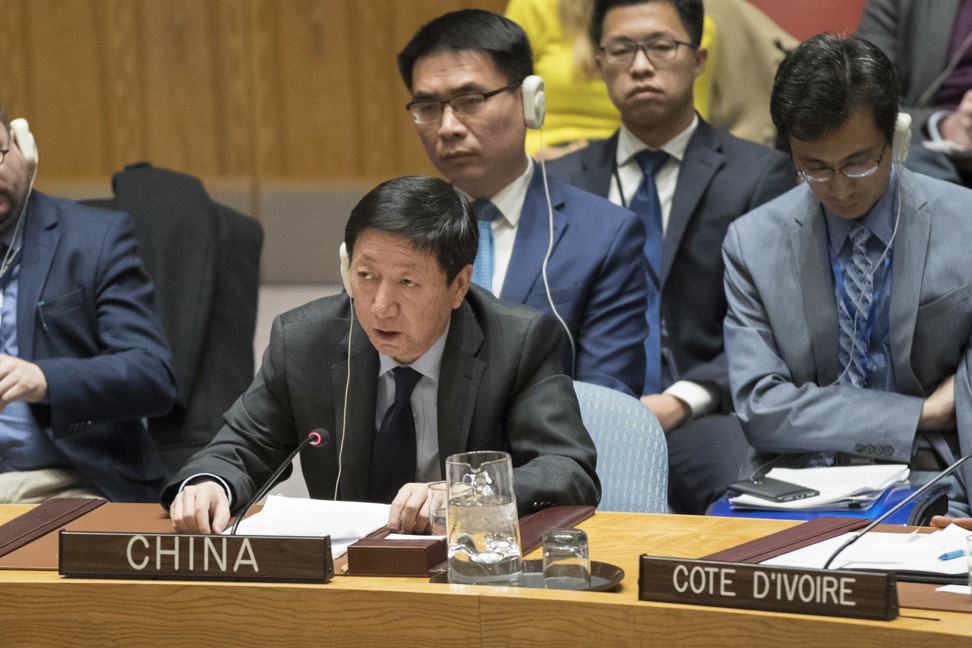
Should Beijing be worried about India’s latest missile launch?
New Delhi is making giant strides in its nuclear weapons development, but observers say there are many reasons for it showing off its growing military might
With the latest successful test-firing of a long-range nuclear-capable missile – with the scope to land a warhead on almost any part of the Chinese mainland – India moved another step closer to establishing an effective deterrent against Beijing’s rising military might, observers said.
The Agni-V intercontinental ballistic missile (ICBM) was launched on Thursday from Abdul Kalam Island in the Bay of Bengal, according to a statement released by India’s defence ministry.
With a range of up to 5,000km (3,106 miles), it has the capability to carry a nuclear warhead to almost anywhere in Asia, or even parts of Europe and Africa, The Times of India reported.
Rajeev Ranjan Chaturvedy, a research associate at the Institute of South Asian Studies at the National University of Singapore, said the successful launch marked another milestone for New Delhi in the development of an effective nuclear deterrent.
“China is a potential threat in the long term, and India, like many other countries, is strengthening its defence capabilities,” he said.
But New Delhi was not only concerned with what Beijing was doing, Chaturvedy said. It also had its own agenda.
“India’s defence programme is very systematic. China’s aggressive behaviour may be an important factor, but it’s not the only factor. India is a rising power and needs a strong defence force.”
Song Zhongping, a former instructor with the Second Artillery Corps of the People’s Liberation Army – China’s military – said that the timing of India’s missile launch reflected the rising tensions around the world, not least with regards to the situation in North Korea.
The Times of India said the successful launch of the Agni-V missile would also add weight to New Delhi’s case for becoming a permanent member of the United Nations Security Council. Its five incumbents – China, the United Kingdom, the United States, Russia and France – are all nuclear powers.
Beyond the world situation, Song, who is now a military commentator with Phoenix Television in Hong Kong, said that Beijing should not underestimate India’s growing nuclear capabilities.
“Agni-V is not only a strategic weapon, but also a real battle weapon with high mobility and stealth capabilities,” he said. “If it goes into mass production it would pose a great challenge to China.”
Thursday’s test flight was the missile’s fifth, and its success suggested that it would soon be put into service, he said.
The Agni-V, which is capable of carrying a single nuclear warhead, was also a stepping stone to the Agni-VI, which would have the capacity to carry multiple devices, Song said.
“It’s likely that the new generation of ICBMs, the Agni-VI, will be equipped with multiple, independently targetable re-entry warheads,” he said. “Once New Delhi has that capability, it will be a great threat to Beijing.”
Despite any implied hostility, Swaran Singh, a professor in the School of International Studies, Jawaharlal Nehru University in New Delhi, said that India’s possession of a greater nuclear capability might actually be a fillip for closer Sino-Indian relations.
“Until the Agni-V is fully operational … India remains vulnerable as it would not be able to reach key targets across China,” he said.
“But its deployment may encourage China to initiate nuclear risk reduction and security- and confidence-building measures with India, which in turn could be seen as China’s endorsement of India’s status as a nuclear power.”
Macau-based military observer Antony Wong Dong said India developed the Agni family of missiles in the 1980s to give it a military advantage over China.
“That’s why Beijing developed its anti-missile system,” he said.



